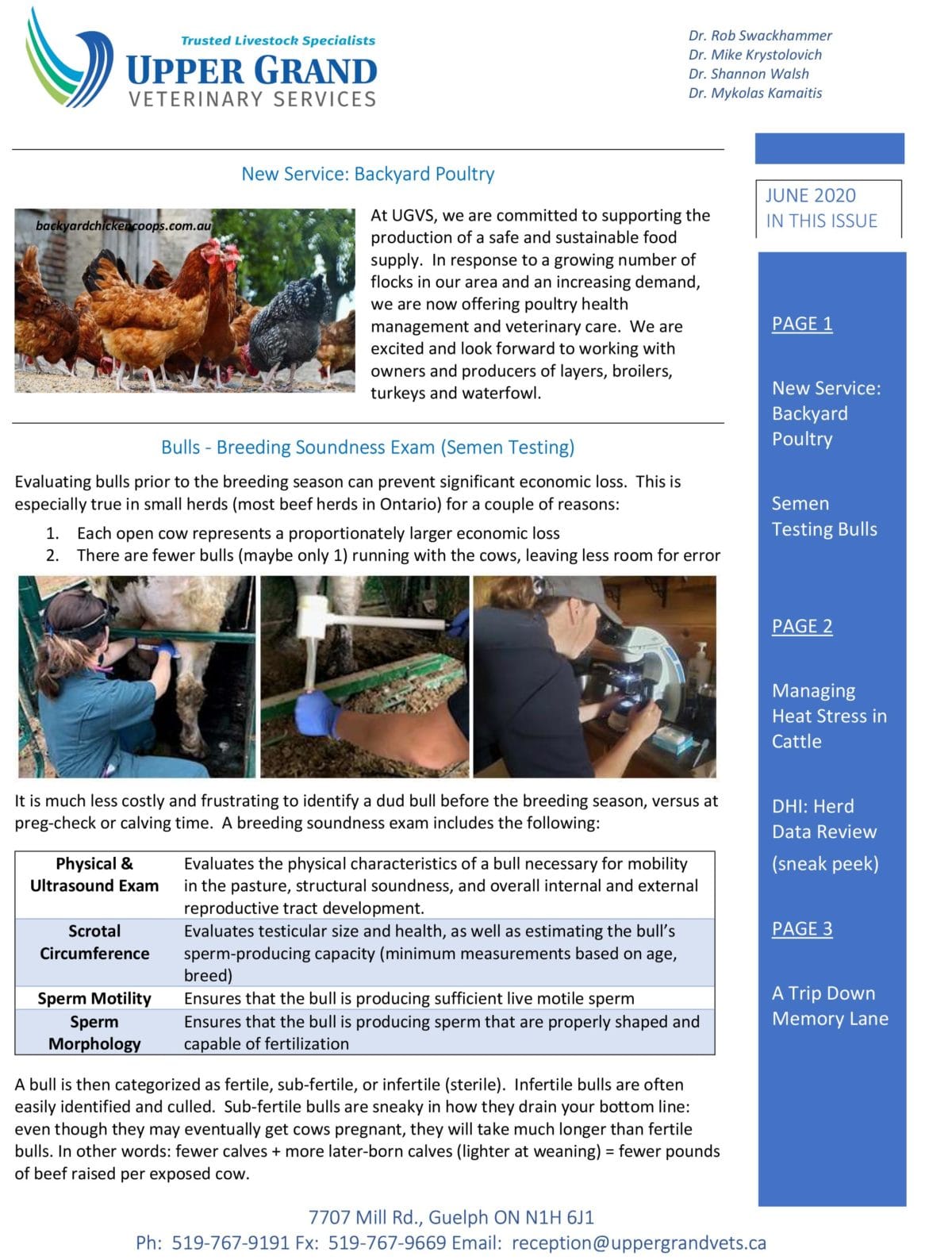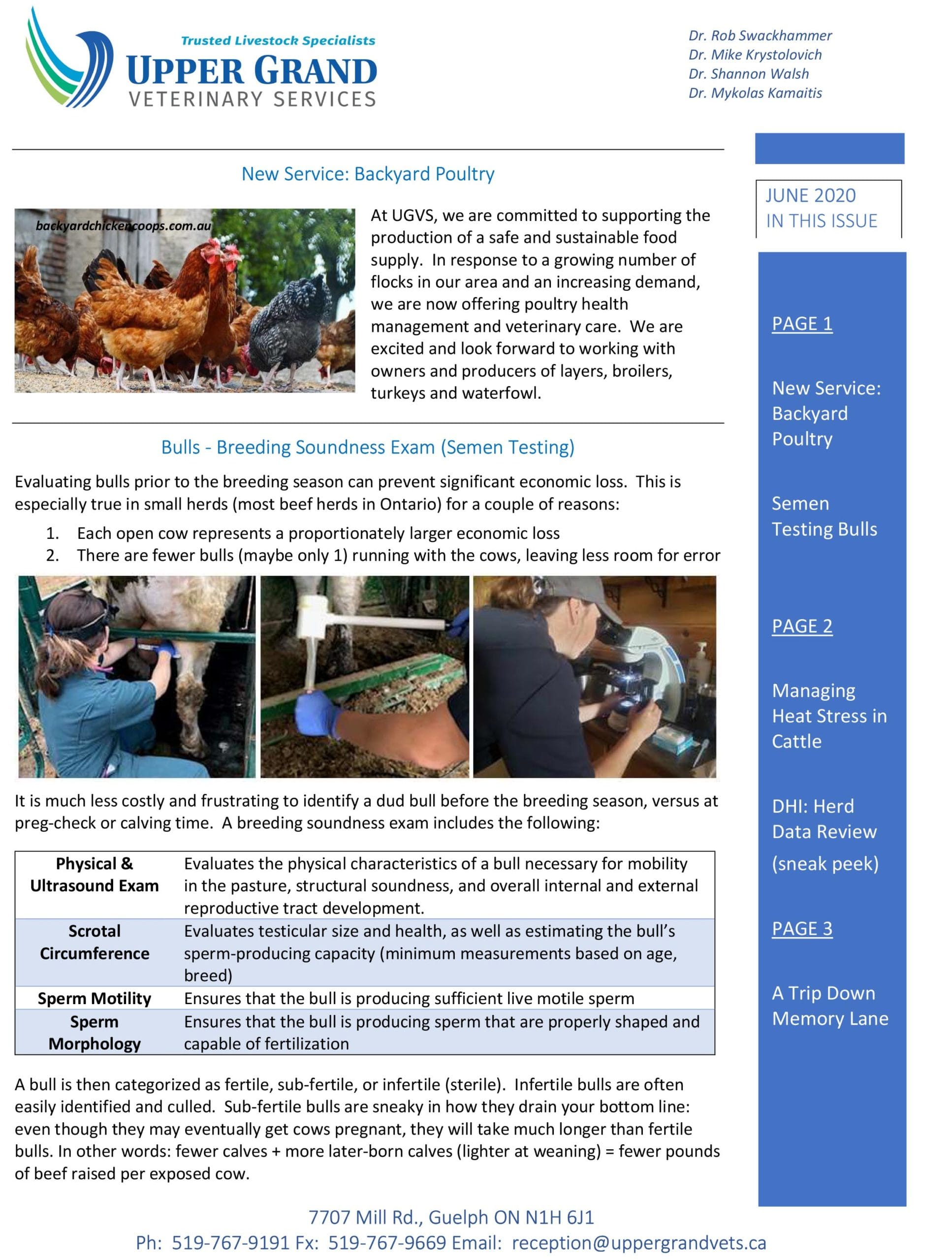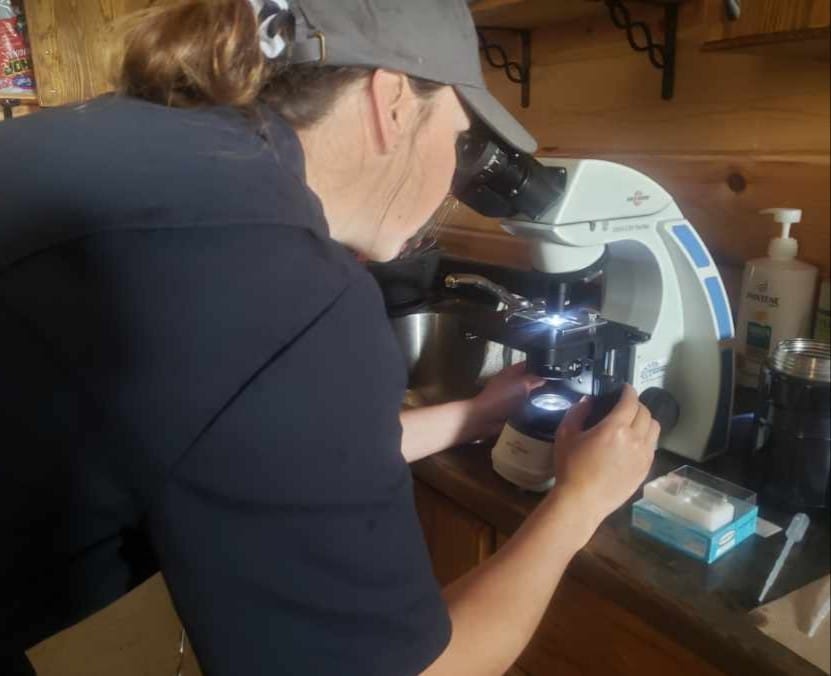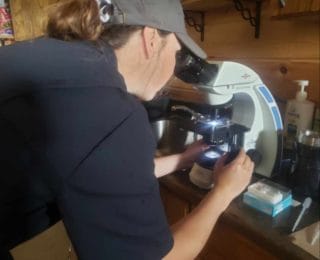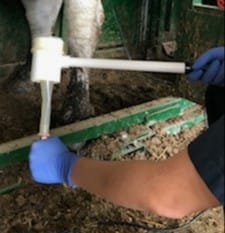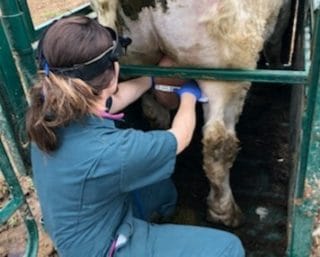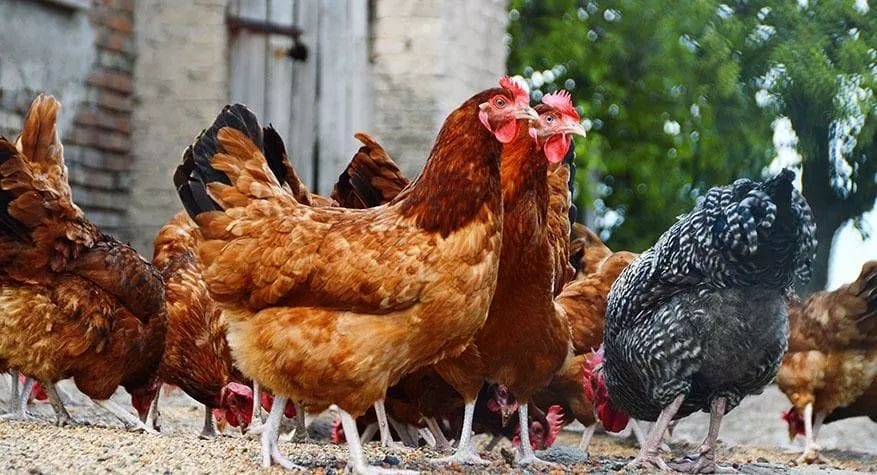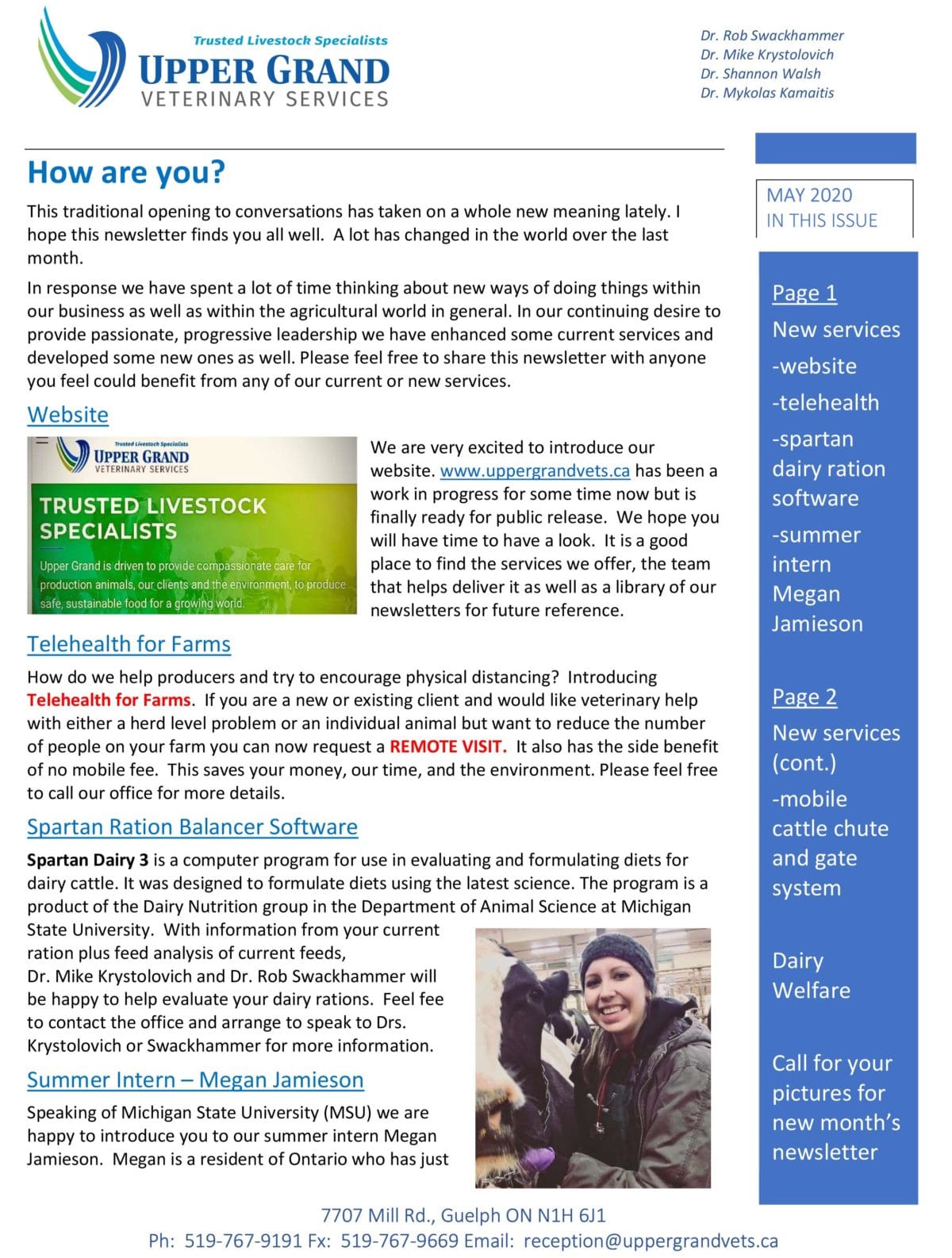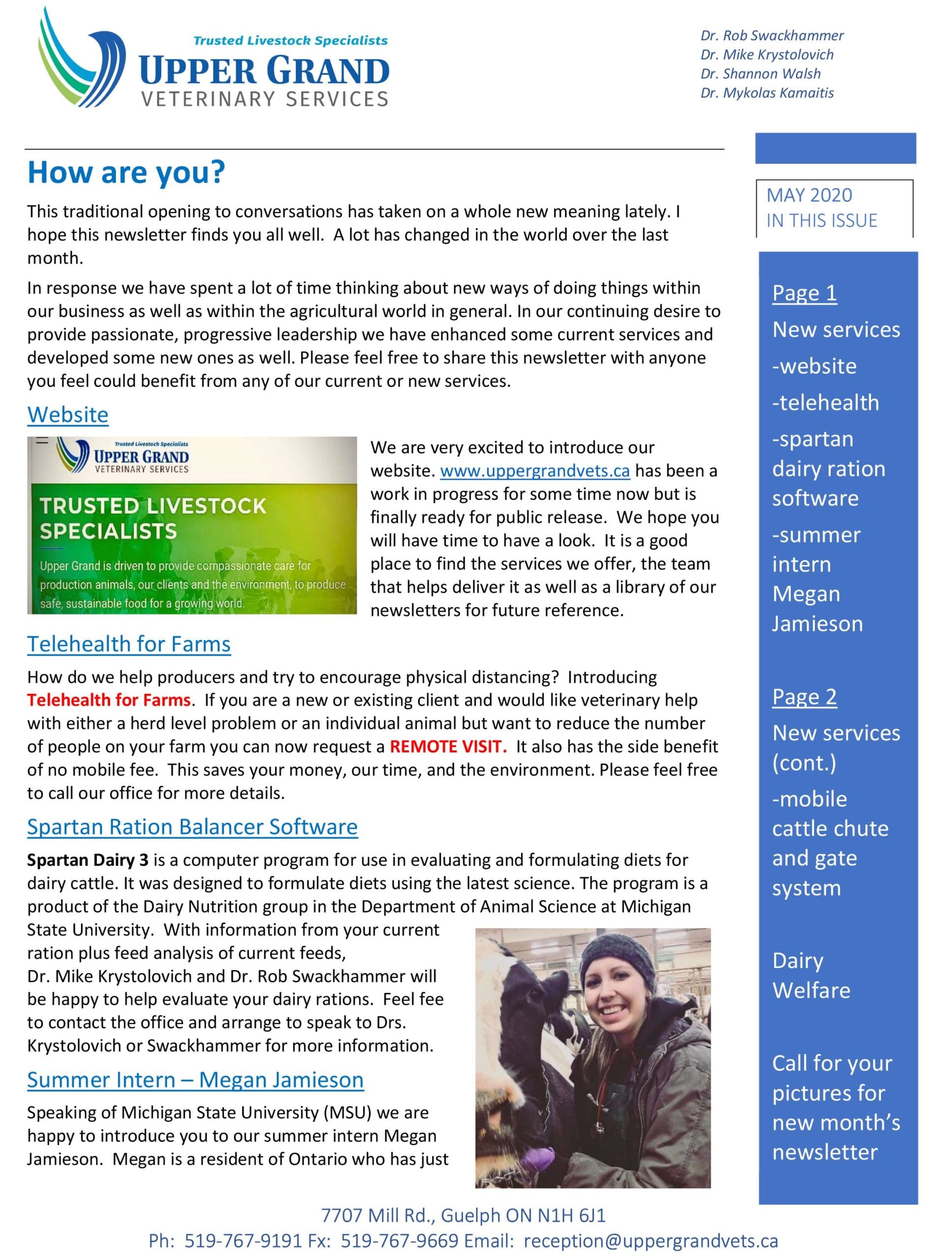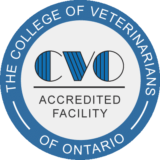We are analyzing clinic wide DHI data from the previous year’s annual report for our dairy producers on test. Our goals in doing so are to observe general trends, celebrate successes, and identify areas for improvement.
Preliminary evaluation of the reproduction data demonstrates that on average, reproductive performance appears to be better in herds that schedule regular herd health visits (weekly/biweekly) versus sporadic or infrequent visits.
We will continue to analyze the DHI data in more detail and are looking forward to sharing our additional findings with you in next month’s newsletter!
If you have any questions on this or other topics, please do not hesitate to contact one of our Veterinarians.
Usually a topic for late summer, but we felt compelled to start talking now! In a matter of two weeks, the climate has shifted from cold and snow to full-blown summer heat. While you might be relieved to feel the warmer temperatures, the sudden swing is very stressful on cattle. Calves can experience heat stress when temperatures rise over 20 °C, and cows over 4 °C. Care should be taken for both adults and newborns, as they are very susceptible to getting sick if not kept cool!
Benefits of Keeping Cattle Cool:
- Higher volume and quality of colostrum
- Improved milk production over the lactation
- Less disease risk in cows: retained placenta, metritis, milk fever, ketosis, displaced abomasum, pneumonia, mastitis
- Less disease risk in calves: scours, pneumonia, dehydration
- Improved weight gains in calves, and reduced weight loss in adults
- More vigorous calves that drink better and are more active
Some Tips for Calves:
- Provide shade for calves (and cows) on pasture, or even if they are in hutches
- Calves in hutches should be allowed space to walk outside
- Face hutches north or east to be out of the direct sun, and elevate the back of the hutch by 6” to allow cool airflow
- Provide clean water free choice even to calves a few days old!
- Keep feed fresh. Change daily to avoid spoilage and decreased dry matter intake
- Calves in confinement should have adequate ventilation and fans
- Keep up the fresh, dry bedding to avoid bacterial accumulation in the environment
If you have any questions on this or other topics, please do not hesitate to contact one of our Veterinarians.
Evaluating bulls prior to the breeding season can prevent significant economic loss. This is especially true in small herds (most beef herds in Ontario) for a couple of reasons:
1. Each open cow represents a proportionately larger economic loss
2. There are fewer bulls (maybe only 1) running with the cows, leaving less room for error
It is much less costly and frustrating to identify a dud bull before the breeding season, versus at preg-check or calving time. A breeding soundness exam includes the following:
| Physical & Ultrasound Exam | Evaluates the physical characteristics of a bull necessary for mobility in the pasture, structural soundness, and overall internal and external reproductive tract development. |
| Scrotal Circumference | Evaluates testicular size and health, as well as estimating the bull’s sperm-producing capacity (minimum measurements based on age, breed) |
| Sperm Motility | Ensures that the bull is producing sufficient live motile sperm |
| Sperm Morphology | Ensures that the bull is producing sperm that are properly shaped and capable of fertilization |
A bull is then categorized as fertile, sub-fertile, or infertile (sterile). Infertile bulls are often easily identified and culled. Sub-fertile bulls are sneaky in how they drain your bottom line: even though they may eventually get cows pregnant, they will take much longer than fertile bulls. In other words: fewer calves + more later-born calves (lighter at weaning) = fewer pounds of beef raised per exposed cow.
If you have any questions on this or other topics, please do not hesitate to contact one of our Veterinarians.
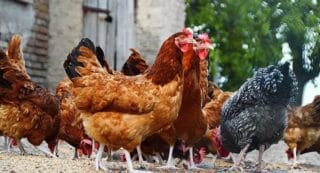 At UGVS, we are committed to supporting the production of safe and sustainable food supply. In response to a growing number of flocks in our area and an increasing demand, we are now offering poultry health management and veterinary care. We are excited and look forward to working with owners and producers of layers, broilers, turkeys and waterfowl.
At UGVS, we are committed to supporting the production of safe and sustainable food supply. In response to a growing number of flocks in our area and an increasing demand, we are now offering poultry health management and veterinary care. We are excited and look forward to working with owners and producers of layers, broilers, turkeys and waterfowl.
If you have any questions on this or other topics, please do not hesitate to contact one of our Veterinarians.



